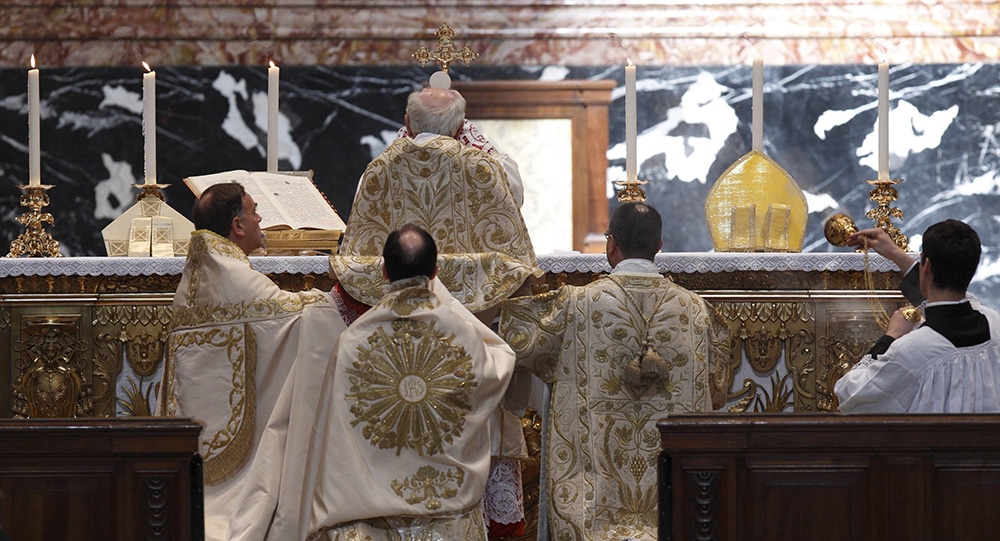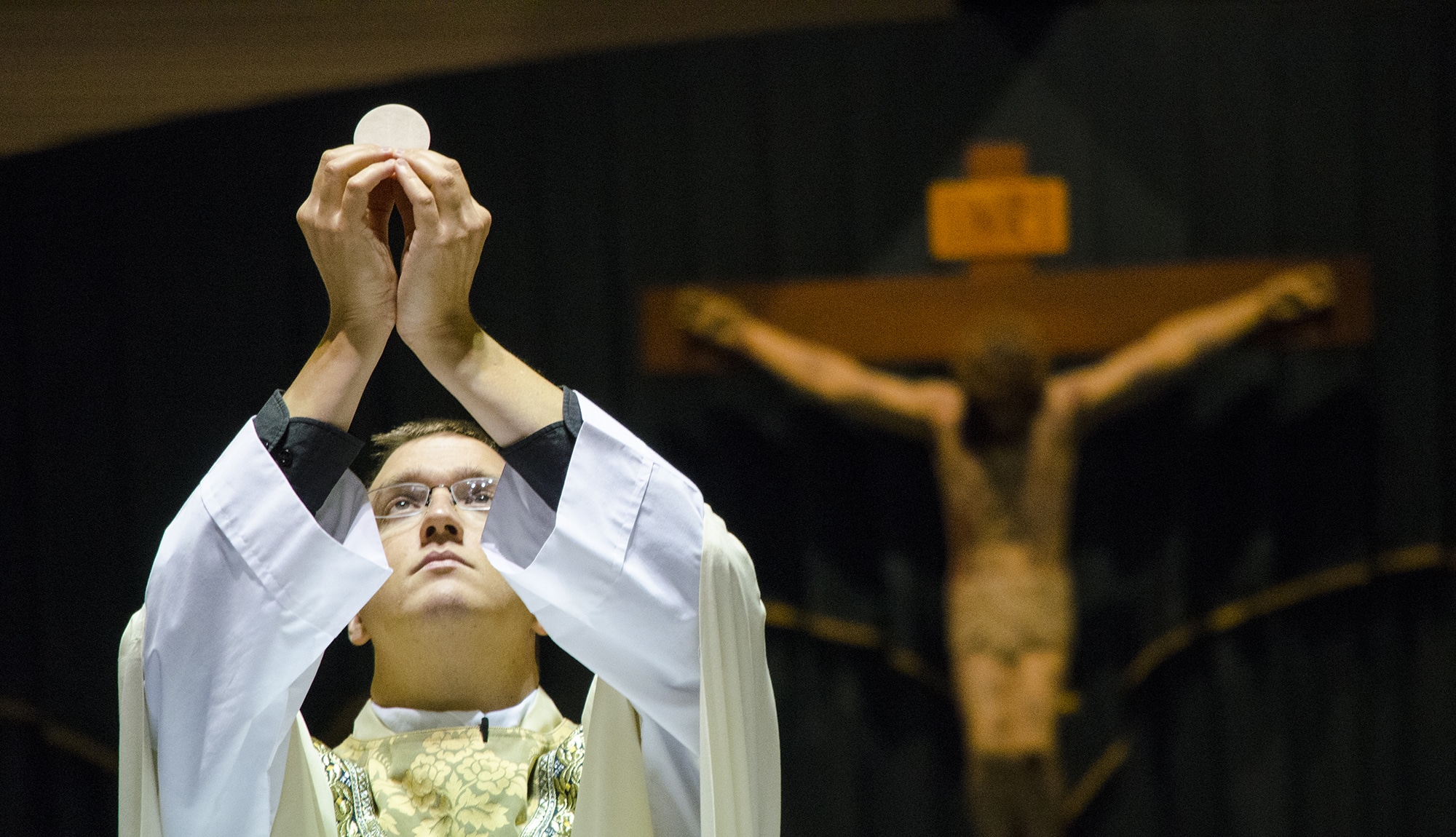Question: As Catholics, we believe there is one God in three Divine Persons. Why then, do the prayers at Mass not use the third person singular verb when ascribing action to God? For example, the Prayer for the Offerings for the 13th Sunday of Ordinary Time reads: ” O God, who graciously accomplish the effects of your mysteries … .” If there is only one God, why isn’t it written, “O God, who graciously accomplishes the effects of your mysteries …”? The psalms appear to do it right: “God rules over the nations; God sits upon his holy throne” (Ps 47:9).
— Name, location withheld
Answer: The grammar of the missal is correct since the second person singular takes “accomplish.” To see this, let’s look at the verb “accomplish.”
Singular
1st person: I accomplish
2nd person: You accomplish
3rd person: He/she/it accomplishes
Plural
1st person: We accomplish
2nd person: Y’all accomplish
3rd person: They accomplish
Hence, the grammar of the missal is correct since we are addressing God in the second person singular and in the vocative case. The vocative case refers to situations in which we are calling (voca = call in Latin) on someone. In the use of the vocative case “O God,” the “you” is implied, but it is, in fact, the second person singular: “O God, (you) who accomplish … .” It would not be proper to say, “O God (you) who accomplishes … .”
Theologically, when we call on God, we use the singular since there is only one God. We say “O God …” not “O Gods.” Further, every external act of the Trinity is an action of the whole Trinity, who is one God.




